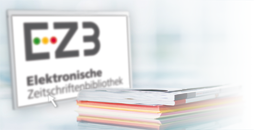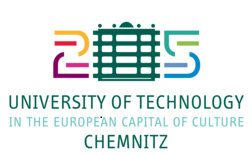“Absence makes the heart grow fonder”: Linguistic and Social Experiences of Immigrant Students in Brazil
DOI:
https://doi.org/10.71514/jssal/2025.170Keywords:
Plurilingualism, critical literacies, immigrant education, Critically Engaged Language and Literacy WorkshopsAbstract
This study explores the impact of plurilingualism on the academic and social experiences of immigrant students in Curitiba, Brazil, utilizing Critically Engaged Language and Literacy Workshops (CELLWs). This research employed arts-based methodologies within CELLWs to probe into the experiences and identities of sixteen immigrant students enrolled in a Brazilian Portuguese as an Additional Language class. CELLWs are designed to foster not only language development but also cultural integration, using critical literacies to challenge and expand the participants' understanding of their new social environments. Drawing on data from CELLWs activities, initial findings reveal that these workshops fostered opportunities for immigrant students to connect their linguistic repertoires with personal and collective identities, enhancing their sense of belonging and agency. The findings provide insights into how educational settings can better support immigrant students, highlighting the role of critical literacies and arts-based research in enhancing educational inclusivity and effectiveness.
Downloads
References
Baker, C. (2011). Foundations of Bilingual Education and Bilingualism (5th ed.). Multilingual Matters.
Brasil (2024). 2024 OBMigra annual report. Observatório das Migrações Internacionais. https://portaldeimigracao.mj.gov.br/images/Obmigra_2020/OBMIGRA_2024/
Relatório_Anual/RELATORIO_ANUAL_24.pdf
Berriz, B., Wager, A., & Poey, V. (Eds.) (2018). Art as a way of talking for emergent bilingual youth. Routledge.
Borgdorff, H. (2013). The production of knowledge in artistic research. In M. Biggs & H. Karlsson (Eds.). The Routledge companion to research in the arts (pp. 44–63). Routledge.
Bourgault, R., Rosamond, C., & Ingalls Vanada, D. (2021). Layering, unknowing, and unlocking: Thinking beyond structure through arts-based research. Journal of Curriculum and Pedagogy, 19(2), 145–171. https://doi.org/10.1080/15505170.2020.1854398
Burdett, C. (2023). Embedding transnationalism in modern languages pedagogy: A UK perspective. Forum Italicum, 57(2), 315–323. https://doi.org/10.1177/00145858231172557
Cummings, J., & Early, M. (2011). Identity texts: The collaborative creation of power in multilingual schools. Trentham Books.
Çelebi, H. (2022). Teaching communities: Working to effect social change through critical literacies and place-conscious pedagogies. Critical Inquiry in Language Studies, 19(3), 237–263. https://doi.org/10.1080/15427587.2022.2030229
Dressler, R. (2014). Exploring Linguistic Identity in Young Multilingual Learners. TESL Canada Journal, 32(1), 42–52. https://doi.org/10.18806/tesl.v32i1.1198
Ehret, C., & Leander, K.M. (2019). Introduction. In K. M. Leander & C. Ehret (Eds.), Affect in literacy learning and teaching: Pedagogies, politics and coming to know (pp. 1–19). Routledge.
Freire, P. (1996). Pedagogia da autonomia—saberes necessários à prática educativa. Editora UNESP.
García, O., & Wei, L. (2014). Translanguaging: Language, Bilingualism and Education. Palgrave Macmillan.
Jordão, C., & Fogaça, F. (2007). Ensino de inglês, letramento crítico ecidadania: um triângulo amoroso bem-sucedido. Línguas & Letras, 8(14), 79–105
Leavy, P. (2009). Method meets art: Arts-based research practice. Guilford Press.
Leavy, P. (2017). Research design: Quantitative, qualitative, mixed methods, arts-based, and community-based participatory research approaches. Guilford Press.
Lee, N. (2023). Rethinking language teaching in multicultural classrooms: Toward a decolonized approach. Journal of Language and Cultural Education, 37(1), 177-189.
Lee, A. J., & Lee, A. Y. (2021). Using critical race spatial method to understand disparities in controlled choice plans. In C. E. Matias (Ed.), The Handbook of Critical Theoretical Research Methods in Education (pp. 81–101). Routledge.
Loveless, N. (2019). How to Make Art at the End of the World: A Manifesto for Research-Creation (1st ed.). Duke University Press. https://doi.org/10.1515/9781478004646
Morris, J. E., & Paris, L. F. (2021). Rethinking arts-based research methods in education: enhanced participant engagement processes to increase research credibility and knowledge translation. International Journal of Research & Method in Education, 45(1), 99–112. https://doi.org/10.1080/1743727x.2021.1926971
Ørngreen, R., & Levinsen, K. T. (2017). Workshops as a research methodology. Electronic Journal of E-learning, 15(1), 70–81. https://vbn.aau.dk/en/publications/workshops-as-a-research-methodology
O’Neill, C. (2008). Drama and the development of literacy. Heinemann
Pack, A. (2023). Discovery critical literacy, reconstructing identity. Journal for Multicultural Education, 17(1), 94-105.
Rahman, M. A., Melliyani, M., Handrianto, C., Erma, E., & Rasool, S. (2022). Prospect and Promise in Integrating Multiliteracy Pedagogy in the English Language Classroom in Indonesia. ETERNAL (English, Teaching, Learning, and Research Journal), 8(1), 34-52. https://doi.org/10.24252/Eternal.V81.2022.A3
Sharafizad, F., Brown, K., Jogulu, U., & Omari, M. (2023). Letting a Picture Speak a Thousand Words: Arts-based Research in a Study of the Careers of Female Academics. Sociological Methods & Research, 52(1), 438–479. https://doi.org/10.1177/0049124120926206
Siebenhütter, S. (2023). The multilingual profile and its impact on identity: Approaching the difference between multilingualism and multilingual identity or linguistic identity. Ampersand, 10, 100123. https://doi.org/10.1016/j.amper.2023.100123
Storto, A. (2022). “To be multilingual means … ”: exploring a participatory approach to multilingual identity with schoolchildren. International Journal of Multilingualism, 1–21. https://doi.org/10.1080/14790718.2022.2082441
Windle, J., & O’Brien, S. (2019). Language, Education and Transnationalism: An Introduction. Trabalhos Em Linguística Aplicada, 58(1), 1–10. https://doi.org/10.1590/010318138654973495571
Zaidi, R., Moura, G.d.C. & Cruz, F.R. (2025), Critically Engaged Language and Literacy Workshops as a Disruptive Pedagogy in Plurilingual Classrooms. Reading Research Quarterly, 60: e597. https://doi.org/10.1002/rrq.597
Zaidi, R., Veroba, M., Morina, M., & Palmer, C. (2024a). Beyond COVID-19: Renewing best practices and relationships among newcomer students, their school, and community. Jeunesse: Young People, Texts, Cultures, 16(1), 49–74. https://doi.org/10.3138/jeunesse-2022-0042
Zaidi, R., Moura, G., & Kassan, A. (2024b). From hope to reality: A case of a Syrian refugee family resettling in Canada. Perspectivas em Diálogo: Revista de Educação e Sociedade, 11(26), 4–25. https://doi.org/10.55028/pdres.v11i26.19195
Zhou, M., & Lee, J. (2013). Transnationalism and the education of immigrant children: A study of Chinese immigrant families. Journal of Multilingual and Multicultural Development, 34(6), 501-517. https://doi:10.1080/01434632.2013.794807
Downloads
Published
How to Cite
Issue
Section
License
Copyright (c) 2025 Fabielle Rocha Cruz, Rahat Zaidi

This work is licensed under a Creative Commons Attribution 4.0 International License.
The work is made available under the terms of the Public Offer and the Creative Commons Attribution 4.0 International License (CC BY 4.0). This license allows anyone to reproduce, distribute, and adapt the material in any medium or format, including for commercial purposes, provided that proper credit is given to the creator(s) and the original source.












